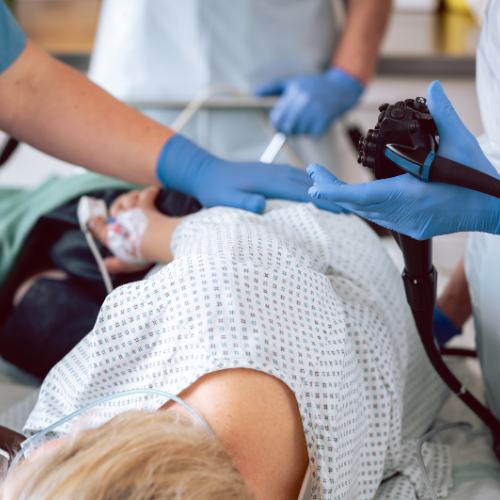
Diagnosing gastrointestinal (GI) disorders accurately is crucial to managing and treating digestive health issues. Two of the most effective and commonly used procedures for this purpose are endoscopy and colonoscopy. Both procedures allow doctors to look inside your digestive system, enabling them to identify any problems early, which is essential for effective treatment. Let’s explore both procedures in simple terms.
Endoscopy is a procedure used to examine the upper part of your digestive system, including the esophagus, stomach, and the first part of your intestines. A flexible tube called an endoscope, which has a tiny camera attached to it, is inserted through your mouth. The camera sends real-time images of your digestive tract to a monitor, allowing your doctor to see any issues.
Why is Endoscopy Done?
The procedure is usually done under mild sedation, ensuring you’re comfortable. Most people feel minimal discomfort, and the procedure typically takes between 15 to 30 minutes.
A colonoscopy is a procedure that examines the inside of your large intestine (colon) and rectum. It is performed using a long, flexible tube called a colonoscope, which also has a camera and light at the tip. The colonoscope is carefully inserted through your rectum to view the entire colon.
Why is Colonoscopy Done?
Colonoscopy is performed under mild sedation to ensure comfort during the procedure. The procedure generally lasts between 30 minutes and an hour, depending on the complexity.
Proper preparation is essential to ensure the success of both endoscopy and colonoscopy.
Both procedures may also require you to stop certain medications temporarily, especially if you’re on blood thinners or medications that affect your digestive system. Your doctor will provide detailed instructions based on your individual health needs.
Endoscopy and colonoscopy are essential tools in diagnosing and monitoring a variety of gastrointestinal conditions. These procedures allow doctors to catch problems early, even before symptoms become severe. Early detection of conditions like ulcers, polyps, or cancer significantly improves treatment outcomes. Additionally, these procedures can help monitor ongoing conditions, ensuring effective management and preventing complications.
While both procedures are safe, they provide valuable insights into your digestive health, which cannot be obtained through routine tests or physical exams alone.
If you experience any of the following symptoms, it’s essential to discuss with your doctor whether an endoscopy or colonoscopy might be necessary:
You should also consider these procedures if you have a family history of gastrointestinal diseases, such as colorectal cancer, or if you are at an increased risk for conditions like Crohn’s disease or ulcerative colitis.

At Gastrovision, we are dedicated to providing unparalleled care for all your gastrointestinal health needs
© Copyright Reserved ! Gastrovision Advance Laser and Laparoscopic surgery center Marketed by 7Star Medtech Private Limited